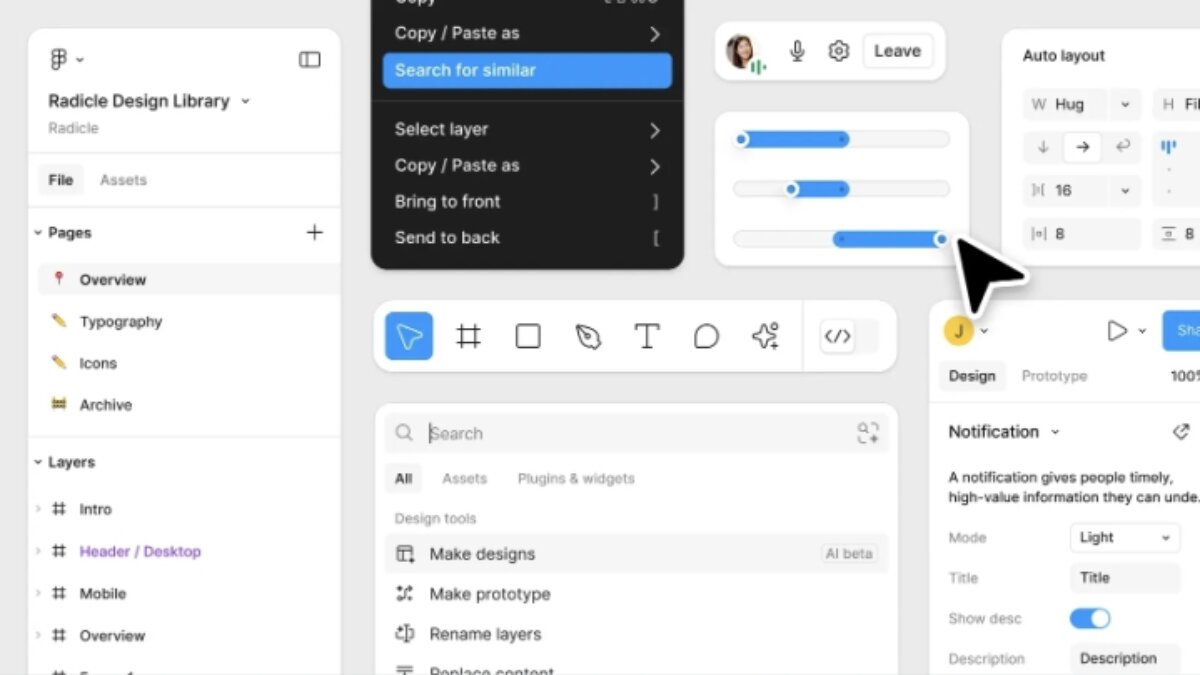At this year’s Config conference, Figma unveiled its latest iteration with a striking redesign and a suite of AI-powered tools aimed at revolutionizing web interface design workflows.
This marks Figma’s third significant overhaul, introducing a fresh visual style characterized by rounded corners, an updated toolbar, and the integration of 200 new icons. The redesign is not merely cosmetic; it aims to enhance usability and aesthetic appeal while maintaining Figma’s intuitive design ethos.
Central to Figma’s latest update are its new AI-powered tools, designed to simplify and accelerate design processes. These tools include Figma-specific capabilities comparable to other applications’ “draft an email” features. For instance, AI-enhanced asset search facilitates quicker access to design elements, while auto-generated text replaces traditional Lorem ipsum placeholders, speeding up layout creation.
During the beta phase, these AI tools are free for users to explore, though Figma plans to introduce transparent pricing once officially launched. Potential usage limits may also be implemented to manage accessibility.
A standout feature introduced with this update is Figma Slides, offering an integrated solution for creating and sharing presentations directly within the app. Similar to Google Slides, Figma Slides allow users to craft presentations seamlessly, with the ability to make real-time design adjustments without affecting original design files. This feature eliminates the need for external tools or workarounds traditionally used for presentation creation.
Moreover, Figma is integrating prototype presentations directly into these slides, eliminating the need for separate screen recordings. Interactive elements such as polls and alignment scales further enhance the presentation experience, making it a comprehensive tool for design reviews and client presentations.
Developers will also benefit from enhanced features in the developer mode, including a “ready for dev” task list that ensures final products accurately reflect the intended design specifications.
Currently available to beta testers, the redesigned Figma interface has generated significant interest, with a waiting list in place for eager users keen to experience its enhanced capabilities. The beta version will remain accessible throughout the year, inviting users to explore and provide feedback as Figma prepares for its official launch.


